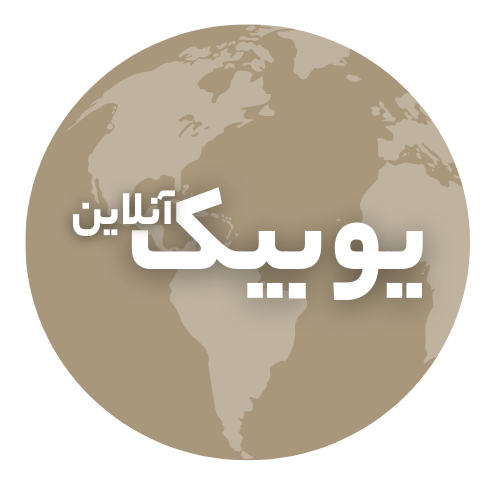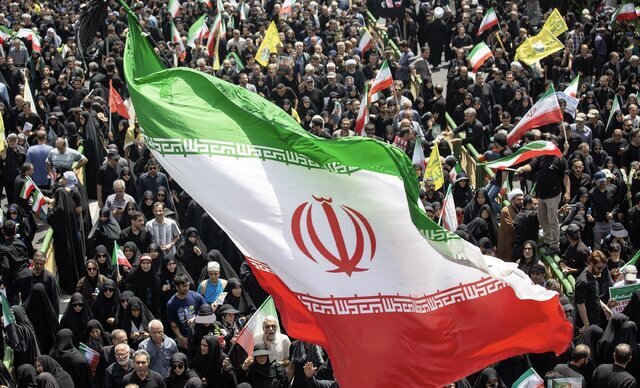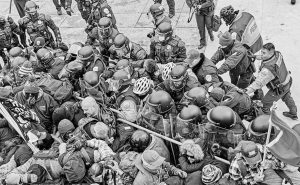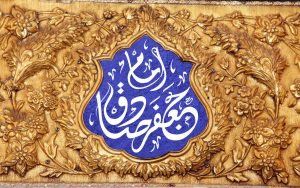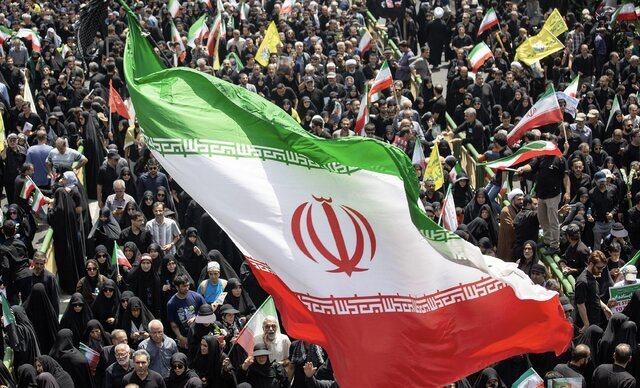
According to the news agency Online NewsAccording to the Online, four academics and social and political activists, in a wide range of political and intellectual forces, both reformist and independent, issued a statement to four necessary protection and national solidarity in the fragility of the ceasefire. Maintaining and opening the umbrella of national solidarity in patriotic defense with a joint command, paying attention to geopolitical and geoconomic metropolitan areas in preparation for all scenarios, urgent creation of public satisfaction within the framework of realistic reforms, and the necessity of resistance to life.
Among the signatories of Mashallah Shams al -Laizin, Bijan Abdul Karimi, Mohammad Darvish, Hamid Reza Jalaeipour, Ehsan Khandouzi, Elias Hazrat, Ali Sarzim, Mohsen Baharvand, Mohsen Yazdanpanah, Mohammad Reza Javadi Yaghi, Mohammad Shakeri, Ali Ardam, Spring Arvin, Mohammad Morouti, Reza Nasri, Ali Nasri, Nasim Norouzi, Seyed Javad Miri, Milad Goodarzi, Mostafa Zamanian, Sajjad Saffar Harandi, Ismail Grami Moghaddam, Ali Nasiri Aghdam, Kamil Shadarloo Jafar, Hojjat Nazari, Maziar Balah, Saeed Nourmohammadi, Diako Hosseini, Mohammad Reza Davood al -Sahini, Reza Tehrani, Farshid Golzadeh, Mohammad Atrianfar, Mohammad Hossein Naimipour, Ali Henry, Mohammad Amin Nikju, Sina Kalhor, Sina Kalhor
The full text of this statement is as follows:
In the name of the kind and righteous God
Dear people of Iran! Social and political forces!
The twelve -day -old war had targeted our beloved Iran’s power and integrity. At the same time, in this patriotic defense, more than a thousand martyrs and dear martyrs, including homeland soldiers and civilian compatriots, and part of Iran’s military forces were lost, and heavily caused heavy damage to the transgressor and security doctrine. Experts in Iran is the enemy of the occupation that has committed the greatest ethnic genocide and cleansing of the century and with the support of the northern northern world does not refuse to violate all international and ethical norms and norms. In the context of the fragility of the ceasefire and the possibility of the invaders continue to strive for all kinds of threats and weakening Iran, attention is essential to protecting Iran and patriotic defense.
2- Maintaining and opening the umbrella of national solidarity in patriotic defense with a unified command and avoiding “blame of the victim”:
What came with the help of the country’s defense forces during the war was the spontaneous solidarity that formed between different groups of people to defend against the invaders. There were no shortage of people who had spent on domestic relations and governance, but entered the Solidarity Basij Square in the patriotic defense campaign. Thus, there was a solidarity that made a variety of groups in defense of the homeland. This solidarity must be preserved and more comprehensive by both the rulers and the political actors. One must avoid bipolarization in this after the ceasefire. This solidarity should not be confiscated in favor of a particular group. On the other hand, the narratives that ultimately call Iran’s policies to war in the form of “blame” and diminish the reality of criminal hostility, and sometimes in statements with benevolent intentions, are the prelude to Iran’s internal divisions. Today is the time of national altitude, not the lines of domestic politics and the front and the repetition of the unthinkable and political demands. The pressure of the war should be the leverage of strengthening the national and the pervasive patriotic defense, not the leverage of eliminating some of the allies and imposing their agreement and solidarity.
Development, Security and Negotiation:
The country’s negotiating apparatus is working. It must be trusted and supported by mobility and its initiatives. Hoping to realize the best scenarios and opportunities to achieve it, one must also be prepared for the worst scenarios. One should not escape the negotiation, but it should be noted that negotiations do not necessarily mean that the negotiating side has stopped trying to weaken Iran. Various experiences in Iran and the countries of the region, including the August 6 coup against the national government seeking to interact with the West, to force -based dominance over the oil resources of different countries, show examples of expressive sovereignty of the resources and fate of countries in its historical context. The economic development of some eastern and southern world countries in interacting with Western powers cannot be considered merely the product of their ability to negotiate and understand Western powers, but various geopolitical and geoconomic factors have played an important role in facilitating a game aligned with the interests of Western European powers. In fact, the development model of such countries is a version whose success in contemporary history has been subject to the acceptance of a specific position in the security structure of a dominant power.
Because of its geographical location, Iran has a difficult path to defend its integrity and power and build development agreements with regional countries and world powers. Until Iran’s secondary information on the security doctrine of the Western powers, it is not a “potential ally” but a “rival in need of control”. Rationality dictates that we strive to change this equation, but reducing this structural context with a “misunderstanding” by unilateral confidence is to overlook historical and strategic facts. In such circumstances, it is likely that the United States will make the main condition of confidence in the weakening of Iran’s hard power components. In addition, the special and solid relationship between the United States and Israel should be considered as a strategic constant. While they can disagree on some goals, the two are today in line with the aim of weakening Iran and ensuring Israel’s regional superiority. This relationship is not an ordinary coalition, but a rooted structure in US domestic politics that has absolute and transnational support.
The new wound that coordinated in coordination with the two – despite pretending to disagree – on the body of Iran clearly shows that “confidence” to create a gap in this coalition through diplomacy is a strategic error. However, the targeting of each gap between the two has a strategic value. Therefore, any interaction must be followed by complete vigilance and assumed the worst scenario and continuity of this coalition, and alternative designs are ready for any scenario. In this assumption, security for a country with Iran’s geopolitical position is not achieved with unilateral confidence. The positive and realistic path is to strengthen all the components of the national power of Iran – military, economic, diplomatic and public satisfaction – and to achieve security based on valid deterrence and design new win -win coalitions and games in the region. It is in the shadow of such security that a stable environment for economic and political development can be provided. This hybrid deterrence is not a goal, but a prerequisite and tool for achieving the same inclusive development that we all want.
The urgency of creating public satisfaction within the framework of realistic reforms:
Over the years, a list of all kinds of structural reforms has been designed by concerns, but it has not achieved it. What to do today? To answer this question, you have to think about why the previous efforts are ineffective and the very specific war situation. Today’s socio-economic system consists of various institutions and stakeholders. The expectation of reforms must be realistic: making and enlargement of the numerous achievements Including attempts to return media authority to the national media and promote cyberspace (which requires a decline in dissatisfaction and security threats). Today, instead of the unnecessary demands of major reforms, excretion, general and impossible, and turning them into a political conflict, the release of the war -released force to build problem -solving agreements and possible achievements must be used. Both in strengthening the country’s defense capability and reforming the economy and reforming the relationship between the state and the nation.
Resistance to suspension of work and life:
One of the great goals of the war is to impose suspension, uncertainty, instability, and disobedience to the country, so that the motivation of life and work and the creation of wealth and power will be eliminated, the consumption of durable goods and services will collapse, and the economic cycles stop. The damages of this expected effect are more than the assumpted war damage that can occur in the future. In these circumstances, “resistance to suspension”, “return to life”, and helping to “create clear horizons” that are excited to the people of Iran and the countries of the region are a public necessity; From economic policies to demand to social action to maintain the process of productive work and the spirit of life in Iran.
Signatories:
Abbasalih Taghizadeh Tabari
Abraham Skafi
Abraham Azadegan
Ehsan Raki
Ahmad Zulfiqari
Ahmad Reza Ehsanian
Ismail Dear Moghaddam
Elias Hazrat
Omid Mehdinejad
Amir Kiomarsi
Amir Abbas Emami
Amir Mohammad Esfahani
Amin Ansari
Amin Kaveh
Amin Nourbakhsh
Amir Zakeri
Arash Salar
Arian Taheri
Ja’frash Barzin
Spring Arvin
Behzad Babazadeh Khorasani
Behnam Zoghi
Pouyan Fakhraei
The message is Afshard
Tahmourspour’s message
Tofiq Hosseinzadeh
Ja’far Charity
Hamed Shafi’i
Hamed owner
Nazari
Hamed Vafaie
Hassan Bojmehrani
Hassan Chenarani
Hussein Kenpour
Hussein Sepahvand
Hossein Askari
Hamid Reza Fooladgar
Hamid Reza Jalayipour
Diako Hosseini
Reza Asadi Fard
Reza Omidvar Tajrishi
Reza Bakhtiari Nejad
Reza Tehrani
Reza Sohrabi
Reza Namdari
Reza Nasri
Ruhollah Islami
Ruhullah Honor
The Spirit of Abu Jafari
Zahra Abolhassani
Saman Youssefvand
Sajjad Safarandi
Saeed Tajrishi
Saeed Hassanzadeh
Saeed Seyyed Hosseinzadeh
Saeed Tawassi Masrour
Saeed Kalati
Saeed Nariman
Saeed Nourmohammadi
Saeed Yaghmouri
Somayeh Jalili
Seyyed Ehsan Khandouzi
Seyed Reza Mirzami
Seyyed Abbas Abbaspour
Sayed Aqil Hosseini
Sayed Ali Rouhani
Sayed Majid Miri
Seyed Mohammad Reza Hosseini
Seyyed Mohammad Hossein Fatemi
Seyyed Mohammad Sadegh Imams
Seyed Hossein Shahrastani
Seyyed Mohammad Hosseini
Seyyed Mohammad Reza Davood al -Husseini
Sina Kalhor
Golden meteor
Shirin Baghdadi
Saber Ja’fari
Saleh Qasemi
Safavid mystic
Abdul Hamid Silver Work
Abdolreza Aristotle
Ali Asghar Blash
Ali flour
Ali Bagheri
Ali Pourkhiri
Ali Jafari
Ali
Ali Sana’i
Ali Fatotian
Ali Gholizadeh
Ali Marvi
Ali Nasri
Ali Nasiri Aghdam
Ali Nematpour
Ali Naqieh
Ali Henry
Alireza Behbahani
Alireza Khamsian
Alireza Fattah
Alireza Shahmirzai
Alireza Majidi
Alireza Nafisi
Ali Naqi Ghaemi Nick
Fazel Meridi
Fatima Tofiqi
Fatima Delaware Paris
Fatima Raigani
Farshid Golzadeh
Farhad Ghodousi
Farid Maraji
Kamil Sohani
Camille Kidarlo
Maziar upper
Mashallah Shams al -Mazin
Mojtaba Bayat
Mojtaba Tavangar
Majid Diamond
Mojtaba Amiri
Majid Siavashi
Majid Shakeri
Majid Mokhtarianpour
Majid Younesian
Mohsen Baharvand
Mohsen Redadi
Mohsen Fathollahi
Mohsen Sabourian
Mohsen Mohammadi Ivanki
Mohsen Yazdanpanah
Mohammad Amin Samimi
Mohammad Javad Ashrafi
Mohammad Hussein Khorramai
Mohammad Haqqi Panahi
Mohammad Darwish
Mohammad Atai
Mohammad Atrianfar
Mohammad Fekri
Mohammad Lamar Habashi
Mohammad Marwati
Mohammad Mehdi Jafarian
Mohammad Mehdi Zulfiqarzadeh
Mohammad Norouzi
Mohammad Amin Rashidi
Mohammedin Nikju
Mohammad Hossein Naimipour
Mohammad Reza Jalayipour
Mohammad Reza Javadi Yeganeh
Mohammad Reza Vahidzadeh
Mohammad Sadegh Saremi
Mohammad Ali Khadem Sohi
Mohammad Ali Rastegar Sorkheh
Mohammad Mehdi Mojahedi
Mohammed Hashem Pasti
Morteza Rouhani Ravari
Morteza Salmani
Marzieh Azarrafza
Marzieh Thabashian
Marzieh Najabat
Massoud Akhavan
Massoud Daroudi
Massoud Salari
Massoud Shaden
Mustafa Zali
Mustafa Zamani
Mustafa Ghaffari
Mena Burka
Mansour Maleki
Mehdi Ahmadi
Mehdi Ash’ari
Mehdi Jamarani
Mehdi Khosravi
Mehdi Rabat
Mehdi Razm Song
Mehdi Zainallo
Mehdi Fadaei Kindly
Mehdi Qasemi
Mehdi Ghorian
Mehdi Kohian
Mehdi Goldani
Mehdi Montazer al -Qaem
Mitra
Meysam Cocoon Sales
Meysam Khosravi
Meysam Mehdiar
Milad Torabi Fred
Milad Goodarzi
Minoo Khanzadeh
Nader Siddiqui
Norouz breeze
Hagar Akhshik
Sayed Javad Miri
Bijan Abdul Karimi
Mohammad Taghi Jan Mohammadi
Mustafa Mousavi Lari
منبع: www.khabaronline.ir
